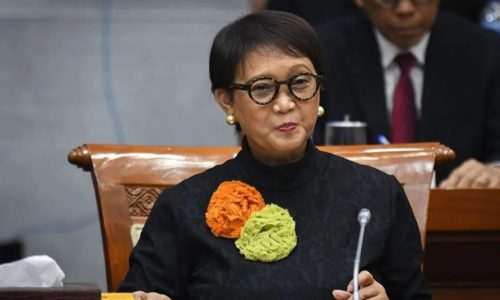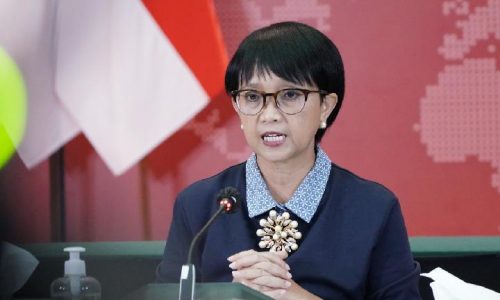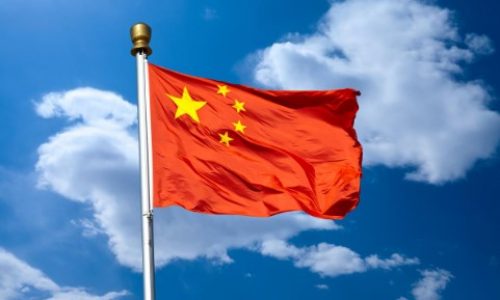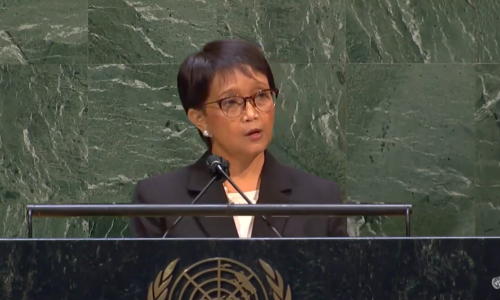China’s Global Security Initiative (GSI) is intensifying its campaign for an alternative to the US-led international order, connecting it to its peace plan for Ukraine and rapprochement between Iran and Saudi Arabia.
President Xi proposes GSI but lacks support from Asian Countries
President Xi Jin Ping had proposed its GSI last April offering initiative for peace. “Promote security for all in the world.”
The Ministry of Foreign Affairs of China had created peace plans for Ukraine and a brokered peace between two geopolitical rivals Iran and Saudi Arabia. The GSI plan aims to be an alternative to the US led peace, while gaining traction in some countries.
Meanwhile, Hoang Thi Ha, researcher from ISEAS Yusof Ishak Institute, said that there is very little support from the Southeast Asian community for GSI.
Johanes Herlijanto, a lecturer at Pelita Harapan University (UPH) explained that Indonesia must remain vigilant and cautious because the idea of GSI contradicts with what happened in the Natuna Islands where various incidents of Chinese fishermen encroaching on the Exclusive Economic Zones (EEZ) of Southeast Asian countries occurred.
“Of the 1,308 respondents who took part in a survey conducted by Hoang Thi Ha and his colleagues, only 27.4% felt confident or very confident that GSI would bring benefits to the Southeast Asia region. Some 44.5% of respondents felt uncertain or not even sure at all,” Herlijanto explained.
Meanwhile, in Indonesia alone there are 19% of respondents who believe that the GSI idea will bring benefits to Indonesia.
On the other hand, many countries, including South Korea and the Philippines, still see the U.S. as the world’s leading strategic security partner.
Responses to GSI
Currently, NATO is set to establish its first Asia office in Japan to broaden its influence in the Asia-Pacific region, and the US is signing defense and surveillance agreements with Papua New Guinea. Offering development assistance worth US$ 32 million, and another US$ 25 million to tackle climate change.
Nikkei Asia reported that Tokyo will allow NATO to conduct periodic consultations with Japan and its key partners in the region including South Korea, Australia, and New Zealand.
Recently, China’s Foreign Minister told the US Ambassador that the US is responsible for the downturn in relation between the two countries and must reflect itself before resuming a healthy track on ties, an official said.
At the same time, the US is trying to weaken China by increasing tariffs to cut China from cutting-edge technology. While China tries to claim Taiwan and large parts of South and East China Sea as their own.
EU advice Asian countries not to use Chinese telecommunications
As tension rise due to the Chinese spy balloon shooting, The European Union also advices Malaysia not to use Huawei 5G technology which makes telecommunications became increasingly fraught with politics
Telecommunications is also becoming an increasingly dangerous area for international competition, with tensions rising between the U.S. and China, and countries in Southeast Asia adopting different approaches to Chinese involvement in their national telecom sectors.
As telecommunications plays a pivotal role in the collection and transmission of information, geopolitics and national security are inseparable with commercial interest.
China in Indonesian telecommunication sector
However, China does not hold any significant stakes in any Indonesia telecommunication company to be used as geopolitical leverage, such as in Telkomsel, XL Axiata, or Indosat.
In Indonesia, the telecom operators are a mix of private, foreign, and partially state-owned companies. But, its sector has demonstrated considerable openness to Huawei as its equipment is more cost competitive, and their incentives outweigh any national security concerns.









